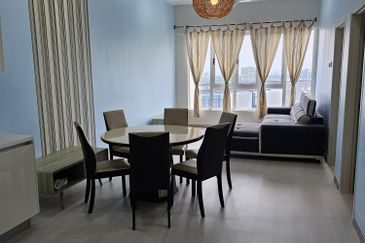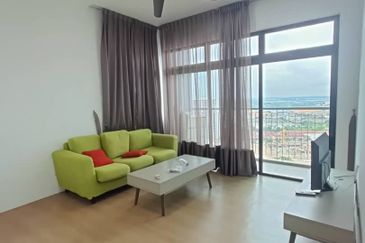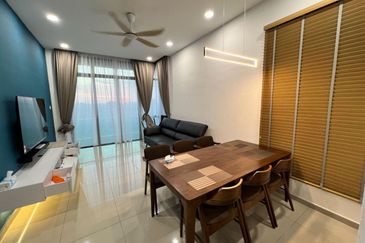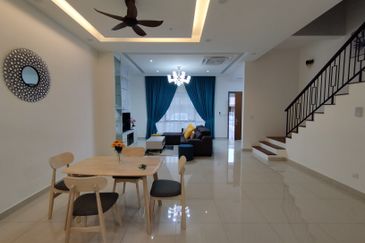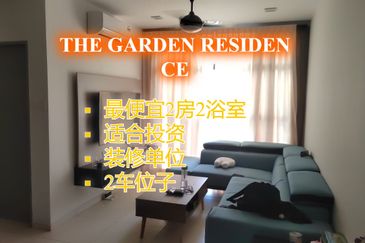
SELLING a property can be made more difficult if the property suffers from certain conditions. Among these are the pretty obvious ones such as run-down properties that need lots of repairs or renovations done and properties along a congested main road.
However, there are other not so apparent factors which may hinder the property from being sold. Properties where a murder or suicide had occurred, or even the belief that a house is haunted, can scare buyers away. Such factors could also devalue a property while some sellers and unethical estate agents may decide to hold back or keep silent about such facts from potential buyers.
However, according to the Malaysian Estate Agency Standards, an estate agent is not allowed to conceal any material facts about a property including the “non-tangible” factors mentioned above.
Malaysian Institute of Estate Agents (MIEA) national vice-president Lim Boon Ping tells TheEdgeProperty.com that Clause 5.2.7 of the Malaysian Estate Agency Standards says that “an estate agent shall not mislead prospective parties by concealing or withholding material facts related to the property”.
Such “problematic” properties may be tough to sell but according to a few experienced estate agents, one can still sell them at the right price and strategy.
Property Hub Sdn Bhd senior real estate negotiator Roy Teo says one way is to emphasise the positive aspects of it. For instance, the property could be in a vibrant neighbourhood or near an upcoming development that would have a positive effect on the future capital appreciation and rentals in the area.
He feels it is important to be honest with buyers and inform them if the unit has any negative issues. People usually react strongly to negative information if they discover them late or on their own, he says.
“As a real estate agent or negotiator, you have to ensure that you have a reasonable seller who understands and acknowledges the problems on their property and are willing to fix them, or set the price accordingly,” he adds.


1. “Haunted” property
In Malaysia, a house that is believed to be haunted is one of the most difficult properties to sell. According to a real estate investor, the way Malaysians deal with haunted houses is totally different from westerners.
“What I have found is that some westerners may be willing to stay in a house believed to be haunted. On the contrary, Malaysians are more afraid of ghosts and such and we will try to avoid staying in so-called haunted houses.
The investor, who does not want to be named, however, had managed to sell off three “haunted” terraced houses in East Malaysia which he had acquired over the past 16 years.
“The first house I bought was a single-storey terraced house, which had been left vacant for a long time. Rumour has it that the house was haunted, but I’m a Christian and am not afraid of ghosts, so I bought it at a cheap price,” he recalls.
He then rented the house out for a few years to some foreign workers before he found a buyer. “Rumours about a house being haunted will not stop if the unit is left empty, so I cleaned up the unit and got people to stay in it to end the rumour, and it worked,” he says, adding that the foreign workers did not complain about any paranormal activities during their stay.
He did the same thing with the other two houses and they turned out to be good investments for him.
“The three houses were all sold after a few years. It was a great deal for me because I had bought them at 30% to 35% below their market price,” he concludes.
2. “Suicide” property
MIEA past president and Heritage Shield Real Estate Sdn Bhd CEO K Soma Sundram had one unforgettable experience, which was about 20 years ago when he was appointed to sell a terraced house in Kepong where a suicide had happened.
The owner failed to tell him about the history of the house but he found out that the second wife of the owner, a Thai woman, had committed suicide in the house.
“This put me in a great dilemma. I hesitated on whether to tell the prospective buyer, but I decided to be honest in the end because for me, a real estate agent’s business is not just about making money, it is a profession, ” he says.
“If the information is critical enough to affect the decision of the buyer, you have the responsibility to share it with them,” he adds.
As such, he told the story to the clients who came to see the house, and it was sincerely appreciated by them.
After three months, Soma sold the house to an Indian couple who was undeterred by the history of the house, and who offered a good price for it.
3. “Smelly” property
Property Hub’s Teo once sold a terraced house which was about 100m away from an aerated oxidation pond.
The house had been on the market for more than six months when he took over. The problem was the nasty smell coming from the pond.
“You will only notice [the smell] if you are standing outside the house, but the house just could not sell,” he recalls.
Nevertheless, he was able to secure a buyer after two months once he began to market the house by emphasising its positive aspects, including the attractive price.
“The owner had already reduced the asking price several times, making it very attractive,” he adds.
To Teo, difficult properties can be easy to sell if the price is right because there are always bargain hunters who are willing to pick up these properties.

4. Ground-floor units of high-rise residences
Ground-floor units in a strata property are usually not favoured by buyers due to several reasons, including concerns over safety, noise, privacy and the limited views.
However, the units can easily be sold when targeted at the right person.
Teo once sold a ground-floor condominium unit in Mont’Kiara, Kuala Lumpur. The view from the living hall and bedroom was towards the walkway outside while the entrance was just next to the lift lobby.
The unit was also slightly darker than others and had less privacy than the upper units.
“After being on the market for many months, and with the asking price reduced, I finally sold it to a buyer who had a phobia about not being able to use the lift in the event of an electricity disruption, lift breakdown or fire,” he says, adding that the unit on the ground level was a perfect match for the buyer.
5. Properties close to a construction site
Noise, dust, bad roads and possible heavy traffic caused by the construction of a project will often drive buyers away.
For example, when the massive construction works on Damansara City’s mixed development in Damansara Heights, Kuala Lumpur began around 2013, it was very challenging to sell the units at Twins @ Damansara Heights, which sits right next to the development, offers Teo.
Twins @ Damansara Heights units were affected because half of the units were facing the noise and dust from the construction site. Besides, the heavy construction machineries and trucks were using the same access road just next to the entrance to the luxury condominium, he says.
Nevertheless, Teo still managed to sell a number of units there by highlighting the positive prospects of the project and the location while stressing that the construction is just a temporary problem.
“I told buyers that this is a good opportunity to pick up a unit at a discounted price due to the problems. Now the buyers who bought at that time are able to enjoy good capital appreciation and rental yield as Damansara City has been completed,” he says.
This story first appeared in TheEdgeProperty.com pullout on Feb 24, 2017, which comes with The Edge Financial Daily every Friday. Download TheEdgeProperty.com pullout here for free.
TOP PICKS BY EDGEPROP
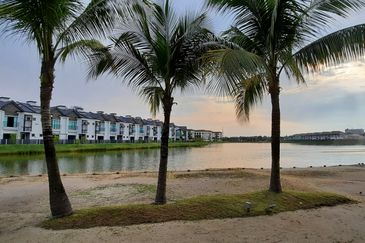
Setia Marina 3, Setia Eco Glades
Cyberjaya, Selangor
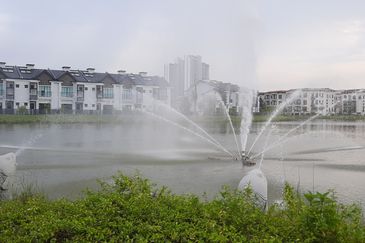
Setia Marina 3, Setia Eco Glades
Cyberjaya, Selangor
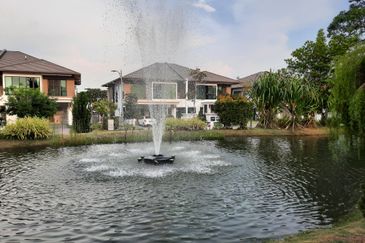
Lepironia Gardens, Setia Eco Glades
Cyberjaya, Selangor
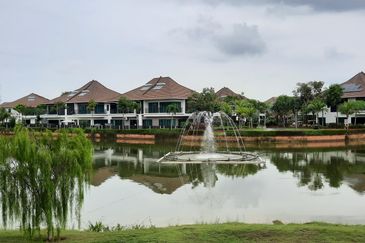
Charms of Nusantara, Setia Eco Glades
Cyberjaya, Selangor

Isle of Botanica, Setia Eco Glades
Cyberjaya, Selangor

Peranakan Straits, Setia Eco Templer
Rawang, Selangor
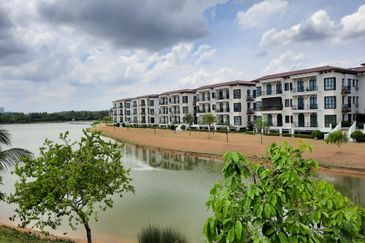
Isle of Kamares, Setia Eco Glades
Cyberjaya, Selangor
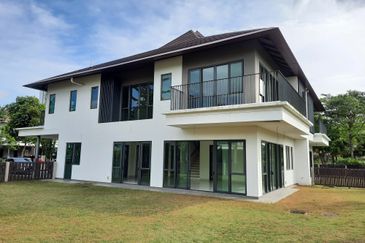
Setia Marina 2, Setia Eco Glades
Cyberjaya, Selangor
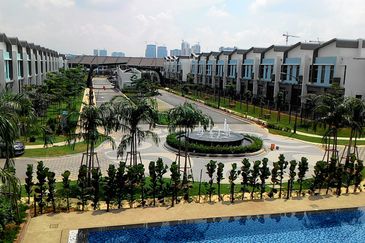
Liu Li Garden, Setia Eco Glades
Cyberjaya, Selangor
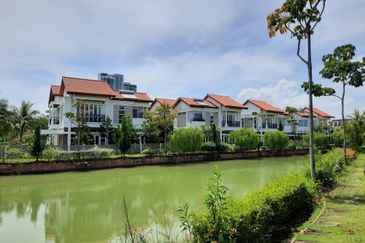
Setia Marina 2, Setia Eco Glades
Cyberjaya, Selangor

Setia Marina 2, Setia Eco Glades
Cyberjaya, Selangor

Tropez Residences @ Danga Bay
Johor Bahru, Johor

